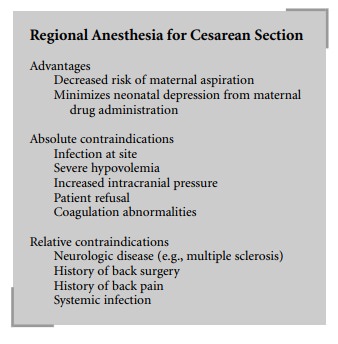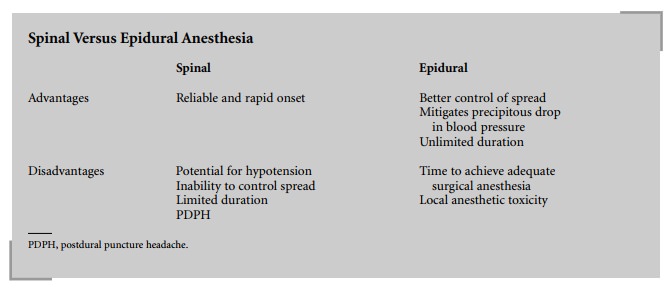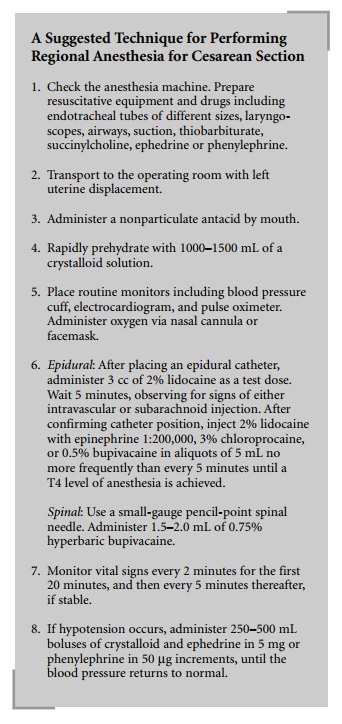Chapter: Clinical Cases in Anesthesia : Labor And Delivery
Describe the regional anesthetic techniques that can be employed for cesarean section
Describe the regional anesthetic techniques that can be employed for
cesarean section.
Regional anesthetic techniques include spinal
and epidural anesthesia. During regional anesthesia the mother remains awake
during the delivery, thereby significantly decreasing the risk of maternal
aspiration associated with general anesthesia. Regional anesthesia also
minimizes the potential for depression of the neonate from maternal drug
administration. Because regional anesthesia is safer than general anesthesia
for both the mother and the fetus, it should be used for all elective cesarean
deliveries.

Relatively few absolute contraindications exist
to regional anesthesia. These include infection at the injection site, severe
hypovolemia, raised intracranial pressure, patient refusal, and coagulation
abnormalities. Relative contraindications include neurologic disease such as
multiple sclerosis, history of back surgery or back pain, and systemic
infection.

Spinal anesthesia provides reliable and rapid
anesthesia. In certain urgent situations, spinal anesthesia can even be used in
place of general anesthesia. Disadvantages of spinal anesthesia include a
potential for hypotension, inability to control the spread of anesthesia,
limited duration and possibility of postdural puncture headache.
Continuous epidural anesthesia allows for
multiple repeat doses of local anesthetic, which offers better control over
anesthetic spread, mitigates against precipitous drops in blood pressure, and
allows almost unlimited duration of anesthesia. Epidural anesthesia can be used
for both labor and cesarean delivery. Compared with spinal anesthesia, the
major disadvantages of epidural anesthesia are the time required to place a
needle or catheter and the potential for local anesthetic toxicity.

Related Topics